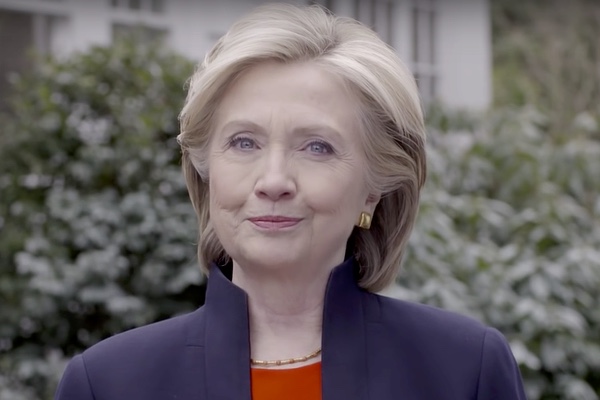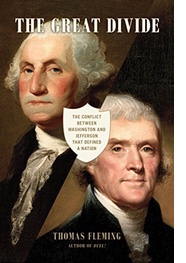Hillary’s Troubled Soul

The New York Times reports that Hillary Clinton did not participate in the multi-million women’s march that jammed the streets of a half dozen cities on Jan. 22. Instead, she tweeted a message: “Thanks for standing, speaking and marching for our values in government @womansmarch,” she wrote. “Important as ever. I truly believe we’re always Stronger Together.”
Much as I admire the grace with which Hillary accepted her defeat, I can’t help but wonder if there was another, far more troubling thought in Hillary Clinton’s mind: why didn’t I lead such a march on the eve of the election?
I think there is a one word answer to this question: Bill.
 The
ex-president was the invisible manager of her campaign. Hillary
silently resisted his advice. That produced the lassitude and
inertia that repeatedly crept into her words and acts.
The
ex-president was the invisible manager of her campaign. Hillary
silently resisted his advice. That produced the lassitude and
inertia that repeatedly crept into her words and acts.
The genesis of these thoughts is an interview that Margaret Truman and I conducted with Hillary in 1995, at the beginning of Bill’s second term in the White House. We were writing a book on First Ladies. Hillary met us in one of the White House’s basement rooms. She wore a wrinkled black pants suit. She was escorted by a secretary in an identical outfit. Hillary’s hair had not seen a beautician in at least a month. She embraced Margaret and said: “Your hair is lovely.”
This was the simple truth. Margaret Truman never went out in public without close attention to her appearance. “So does yours,” Margaret said, telling one of the nicest polite lies I have ever heard.
Hillary and Margaret were acquainted. During Bill’s campaign for his first term, he began to push ahead of the incumbent president, George H.W. Bush. The president took a leaf from Harry Truman’s 1948 campaign and began running as an underdog who was confident he would come from behind at the last minute. Bill persuaded Margaret to do a TV interview, in which she remarked that someone should tell President Bush he was no Harry Truman and never would be. Both Clintons were more than a little grateful.
Now, in our basement conference room, we sat down at a large oval table and Hillary’s secretary took out a tape recorder. She informed us that we could not quote anything Mrs. Clinton said without her permission. More than a little irked, I took out my tape recorder and turned it on. “Now we’ll be on the same page,” I said.
I was not in the best of moods. When we arrived at the White House, we discovered no one had told the guard or anyone else about our appointment. There was no car to drive Margaret the quarter of a mile from the gate to the entrance. She was in her seventies. When we finally trudged to the White House, we were escorted to this basement room. As a member of a former First Family, Margaret expected the interview to take place upstairs, in the Clintons’ private quarters.
In spite of this lack of courtesy, the tape recorders whirred and the interview began. Hillary could not have been more pleasant or courteous. She showed flashes of humor. When Margaret asked how Chelsea was reacting to life in the glare of White House publicity, Hillary said: “She may be our biggest accomplishment. She’s enjoying herself.”
The interview was winding down, with Hillary saying she too enjoyed being a First Lady, thanks to Bill’s decision to give her a staff and tasks to perform, such as exploring a national health plan. As Margaret began thanking her, the double doors burst open and in charged BILL. I put his name in caps because he was instantly the biggest person in the room, physically and audibly.
“Margaret Baby!” he roared and zoomed around the table to take Margaret in his arms. Introduced to me, he crushed my hand and added a bone-menacing squeeze of my shoulders “Ahm just back from Boston,” he roared. “I told those Beaneaters some of my best Harry Truman stories, like the time he threatened to throw Old Joe Kennedy out the hotel window if he gargled one more insult about FDR.”
Bill roared two or three more Truman stories and a couple about the Democrats of Boston, for whom politics was a perpetual civil war. I’d heard the Truman stories. Margaret and I had written a tremendously successful biography of her father. While I pretended to listen, my eyes drifted to Hillary.
She was no longer sitting confidently erect in her chair at the head of our table. She had visibly slumped. As Bill continued his monologue, she got up from the table and sat down in an easy chair against the wall. When Bill continued to gag it up in the same bellowing voice, Hillary seemed to find the torrent of words a burden. She sank deeper into the armchair, as if she were trying to avoid them.
Suddenly Bill announced he had a half dozen people waiting in the Oval Office. He headed for the door. As he passed Hillary, he did not even glance in her direction. She reached out and seized one of his hands. “Honey?” she said in a breathy squeaky voice we had not heard before. It had an almost comic sound. As if she were imitating a little girl. With it came rapid blinks of her eyes, a parody of flirtation. “Do you think we could have a drink about seven thirty?” Blink blink blink – and a totally artificial smile.
Bill gazed down at her, annoyance almost visible on his face. “Aw Honey Ah can’t.” Thud. His extricated hand fell on her shoulder. Hillary sank another six inches into the armchair. “Ah’m stuck with the Secretary of State until about eleven. Foreign policy stuff!”
The double doors banged open. Bill was gone. We all sat there as Hillary struggled back to a more conventional position in the armchair. No one said a word. Hillary stared at us. She seemed dazed. “Would you like a tour of the White House?” she asked Margaret.
This was a strange question to ask someone who had lived in the “Great White Jail,” as Harry Truman called it, for the better part of eight years. Margaret told her we had a plane to catch. Soon we were in our hired limo, heading for the airport. I did not know what to say and wisely kept quiet. After about five minutes, Margaret said: “Didn’t her hair look like hell?”
I asked her if we had to clear our quotes with Hillary. “We’ll use anything we please,” Margaret said. “If she complains, I’ll tell her to go to hell.”
This was more than a glimpse that Margaret had been turned off by Hillary’s strange performance with Bill, on top of the discourtesy of the basement room for our interview.
I could not stop thinking about Hillary’s performance. As the Clinton presidency slid into national disgrace with the news of Bill’s sexual games with the young intern, Monica Lewinsky, I wondered if we had seen a kind of darkness in Hillary’s relationship with her husband that revealed an inability to love him – or leave him. Monica was by no means the only woman that Bill had been accused of seducing. Was Hillary a trapped woman – trapped by political circumstances and by a physical attraction that she could neither understand nor escape?
Personally, I liked her. There was something poignant about her situation. I followed her through her years as a senator from New York and her career as secretary of state. In both jobs, there were few accomplishments to see or admire. Were these semi-failures part of some mysterious short circuits that left her with little interest in either position, beyond their ability to lead her to a run for the presidency?
In a TV show about the Clinton Presidential Library, Bill insisted on being the host. He managed to get through the display that reported his impeachment for lying under oath about Monica Lewinsky with no visible emotion. The next exhibit was the election of 1998, in which the Democrats had gained seats in Congress – an unusual feat for the party in power in a midterm political contest. “That’s mah vindication,” the ex-president said.
Were his apparent reconciliation with Hillary and her two runs for the presidency also part of this search for “mah vindication?” Was this what poisoned Hillary’s campaigns, producing bouts of illness as well as speeches full of leaden clichés? I am by no means the only historian who has had such thoughts. The reviewer of a new biography of Bill notes that he built his presidential candidacies on playing to the economic anxieties of the Democratic voter. That makes it “even more mystifying” that Hillary ignored these anxieties in her 2016 campaign.
When I think of Hillary these days, I am filled with sadness.